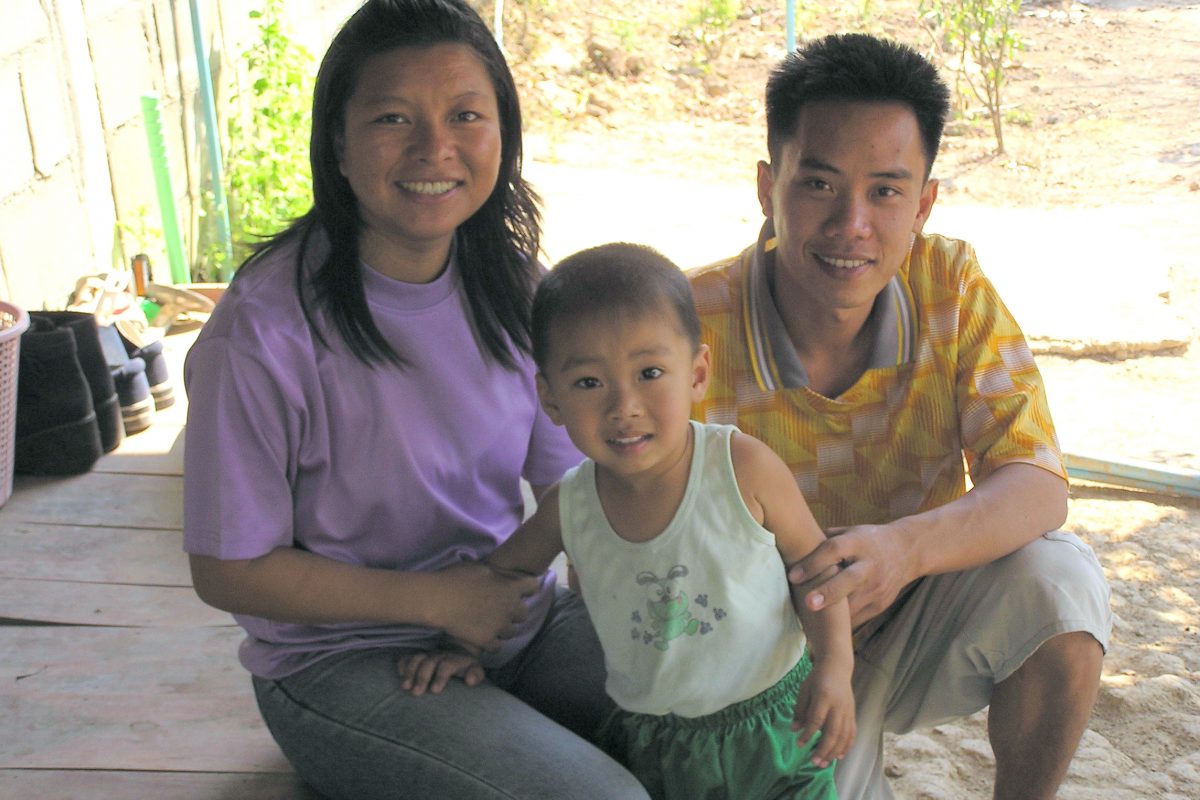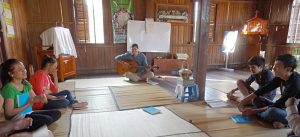
A reflection by Fr. Ivan Campana, for the Eighteenth Sunday in Ordinary Time. First reading: Ecclesiastes 1.2; 2.21-23, Second reading: Colossians 3.1-5; 9-11. Gospel: Luke 12.13-21.
In a modern society defined by activity, productivity, and business, most people are tempted to measure their happiness by how rich they are.
In a modern society defined by activity, productivity, and business, most people are tempted to measure their happiness by how rich they are, by how much salary they receive, or by how connected they are with technology and fashion. This modern mentality encourages people to build up a lifestyle that is more materialistic than spiritual—a style of life that makes people consumers, even of things that they do not need.
Based on a US Commerce Department report, Americans spend $1.2 trillion on goods and services they don’t need. In Cambodia where I live, even though people get just $120 dollars per month to support their families, they, too, like to buy material things.
So why do we do that? Based on a psychological definition of modern-day people, it says that “we are nesting, possessive creatures.” You need only to look around your home and see how many things you have bought that either you don’t need or have rarely used. We can say that our private spaces can tell us something about who we are.
What would happen if there was a hurricane coming or a fire raging close to your house? What would you take? Depending on our personalities, we would take the things that are meaningful to us such as family photos and personal identification, and a few believers might take a religious item. We may also take money. After a disaster, people make the harsh realization that everything they have accumulated is gone.
The first reading reminds us that people cannot place their trust in any material thing in this world in the hope that it will make them completely happy. Some material things may be necessary for our survival, but we cannot allow them to control and manipulate our lives. It is only God who can give us real happiness. We work to support our families, buy a nice house to live comfortably, buy a car to get around easily, but we may come to realize that these things cannot give us true happiness, the happiness that comes only from our relationship with God.

Fr. Ivan with young people in the mission parish of Kdol Leu, Cambodia. Photo by Fr. Jack Lynch, SFM.
All the things that we have accumulated by our efforts and sacrifices are positive signs that we are people who want to give our families and ourselves a better life. It is wonderful to be able to do that, but we cannot allow things to separate us from God because God has to be the real motivator in our daily lives.
If a tragedy befalls us and everything we have is destroyed, it is very difficult to understand why such a terrible thing has happened. But with faith in God, we will never give up and will always be a hopeful people starting over on our journey in the world.
In today’s Gospel, Jesus tell us the story of the rich man to help us understand that material possessions often bring conflicts among relatives and sometimes do not allow us to trust in God completely. If we analyze this text carefully, we can see that this rich man had not done anything wrong. As a Jew, he probably practiced his religion according to the law. His problem was his greed, which did not allow him to follow Jesus and live in peace with his family. His dilemma was that he wanted to follow Jesus and also continue to maintain his wealth and position. I do believe that when our hearts are full of such dilemmas, we are always in an internal conflict that not only affects the people around us, but also blocks our relationship with God. But if we open our hearts to God, incredible things that we cannot even imagine can happen. It only depends on us.
A young volunteer’s experience
I remember a French volunteer, Teresa, who came to work in Cambodia with a project called Copus, which invites young people from around the world to take part in building homes for the poor. Volunteers pay their own travel expenses and must be available to work in a mission for two weeks, enough time to build one house.
Teresa was a fashion model and quite wealthy. She wanted the best clothes, the most modern car, and the most expensive smartphone. When she came to Cambodia, she was appointed to work in my mission, an eight-hour bus ride from the capital, Phnom Penh. Her team worked very hard despite the many difficulties such as the heat, the unfamiliar local and traditional foods, and the inability to sleep because of such things as mosquitoes and jungle noises. Everybody was supportive except Teresa who felt she suffered more than the others.
Two weeks later when we finished the house, I invited the young volunteers to a blessing of the new house and to thank God for this wonderful experience. Everybody said something, but Teresa could not speak. She just cried. After a few minutes she finally said, “I have lived in a superficial world, full of things that are not important in order to be a happy person. I have been jealous of the money my parents have given to my brothers. As a model I make good money and I have spent a lot of it on things that I don’t need. But now, I can see that rich possessions and jealously are not important things if you want to be happy. To live in simplicity, to eat what we have together, to speak with and be open to everyone, to help others—these are the real ways to become a happy person. So, I thank God for this touching experience and I ask God for forgiveness.”
As humans, our journey is to grow, to work, to have a family, and to live happily in this world. Everything that you accomplish with dignity and dedication is wonderful. But do not forget that God is the most important relationship in our lives. So let yourself be touched by God and you will experience the wonderful things God can do for you just as God was able to touch Teresa and transform her life.
Fr. Ivan Campaña is an Ecuadorian missioner of the Colombia-based Yarumal Institute for Foreign Missions. Fr. Campaña is parish priest of Kdol Leu, about 150 kilometres northeast of Phnom Penh, Cambodia. He resides with the Scarboro Missions community when doing studies in Toronto.
